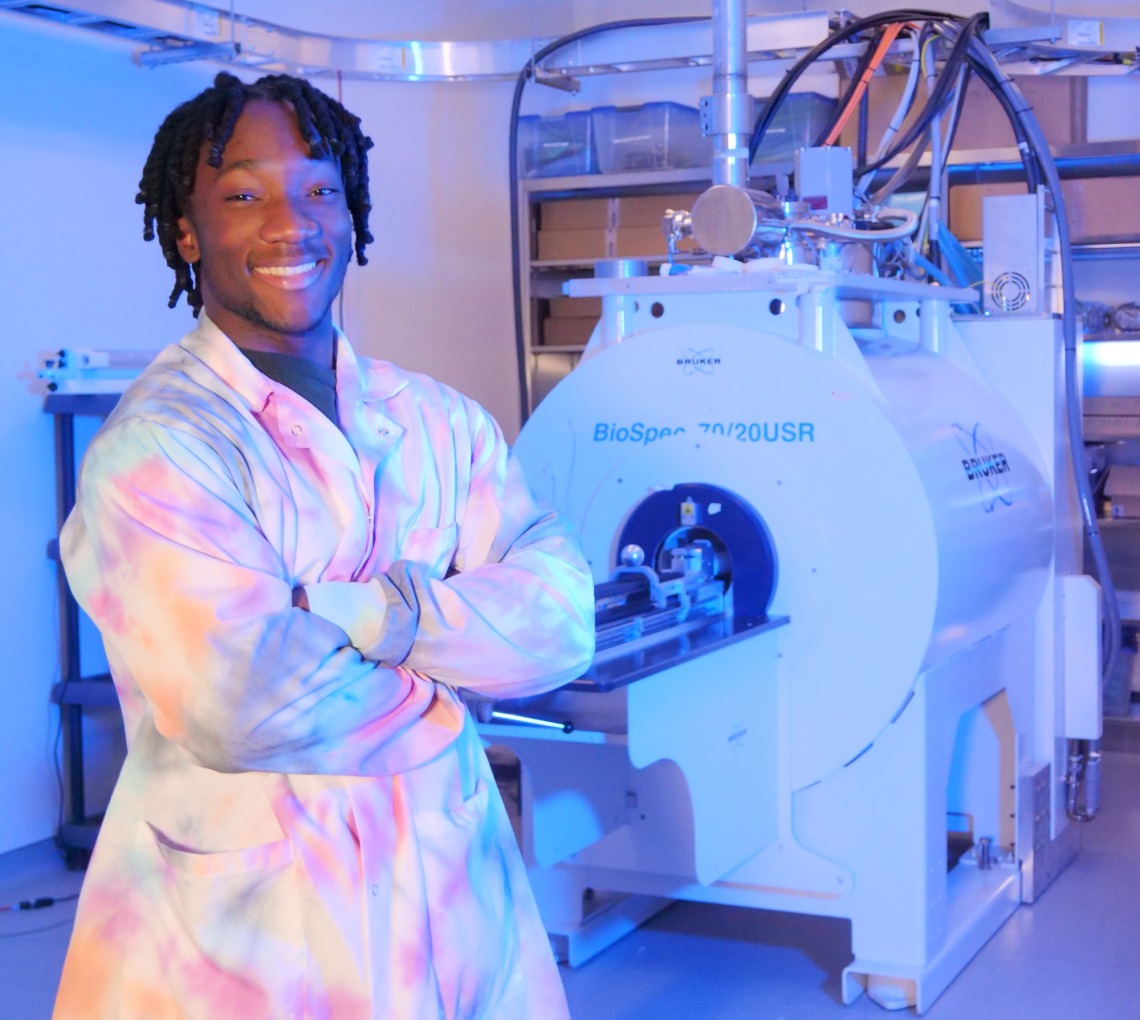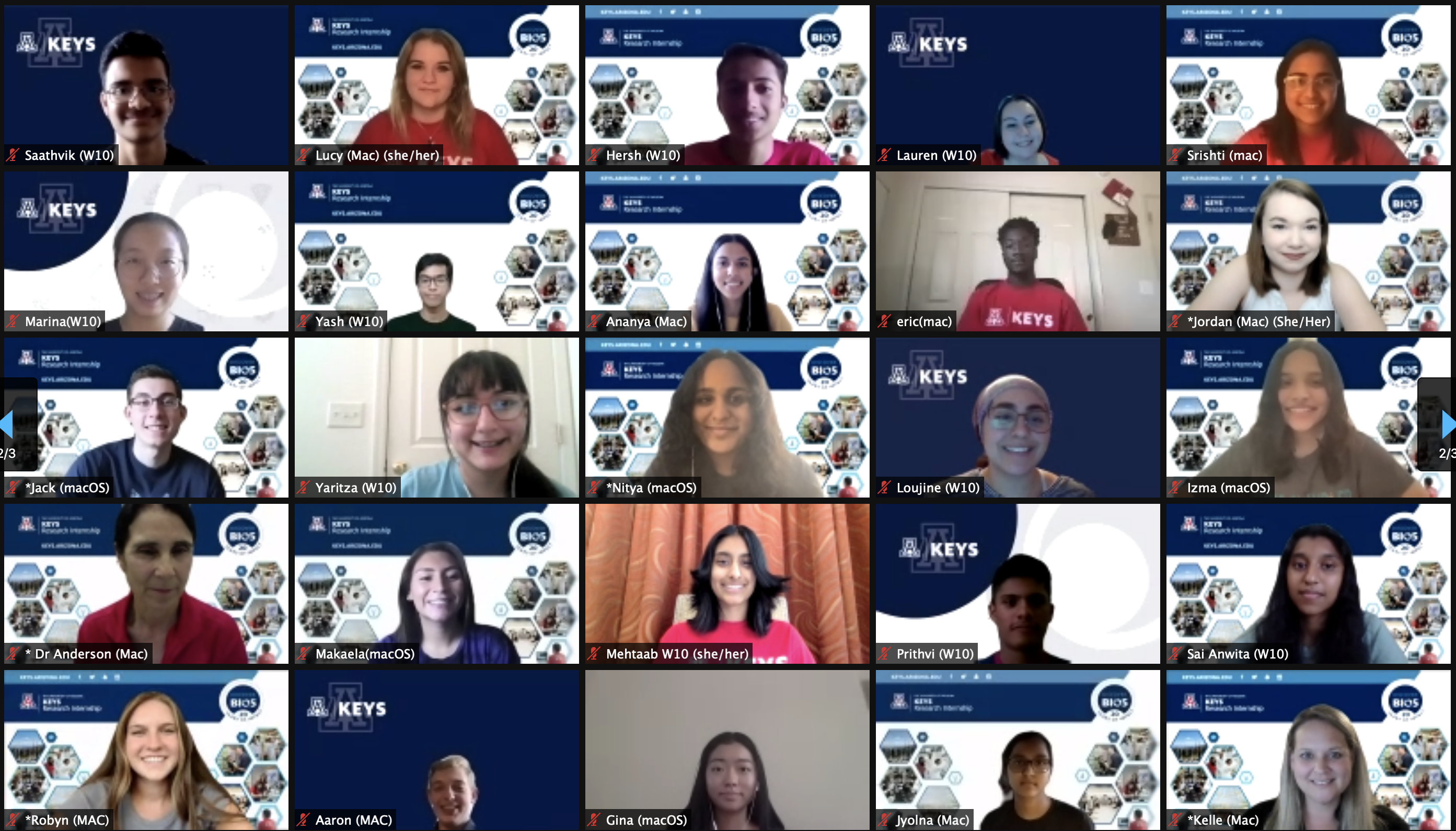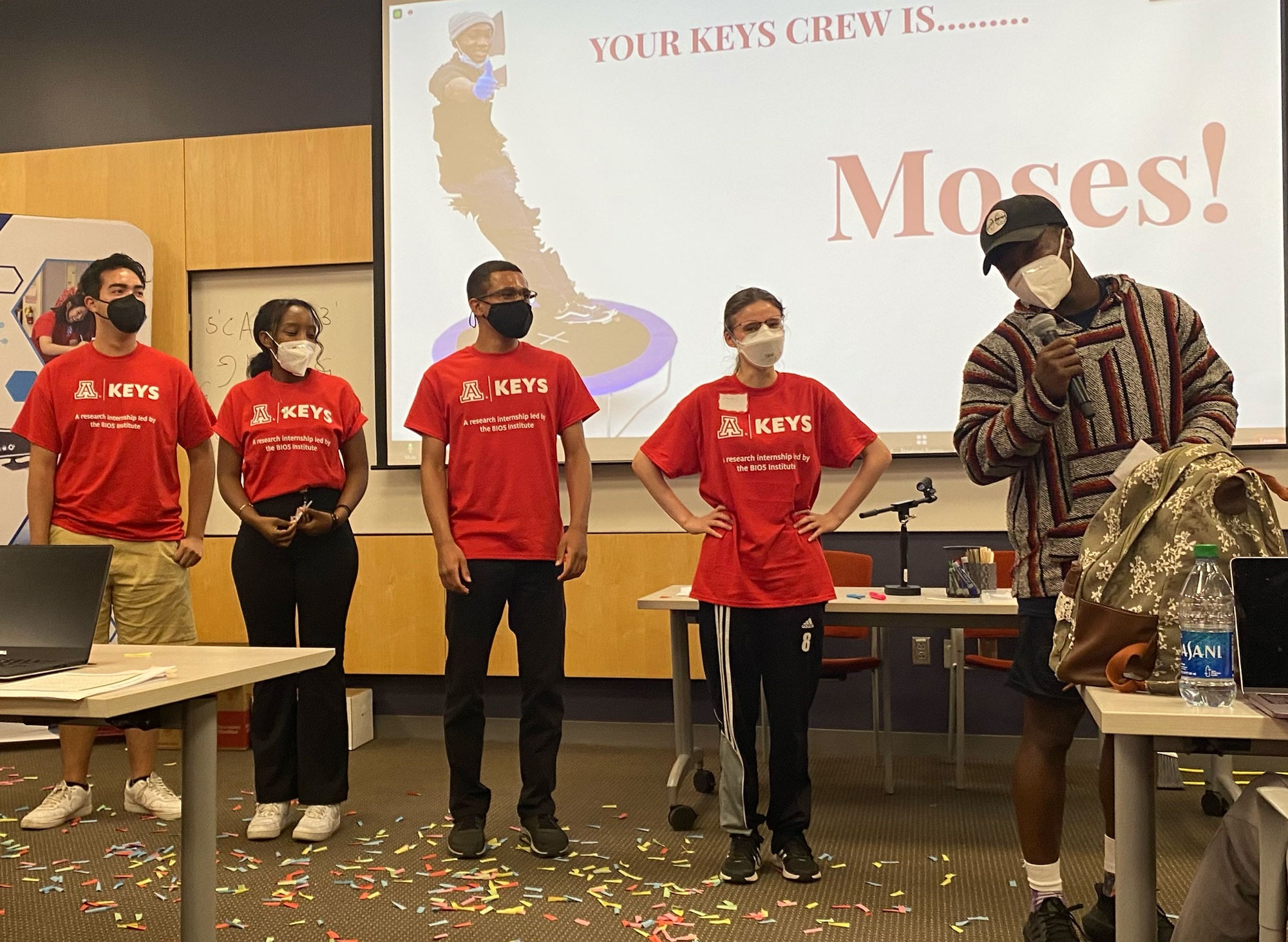Brain Science and Social Hours: Moses Foiryolo (KEYS ‘21)
Science intimidated first-generation college student Moses Foiryolo a few years ago, but now he’s an undergraduate brain science researcher aspiring to become a physician-scientist.

Moses Foiryolo is a University of Arizona physiology major and 2021 alumni of the KEYS Research Internship.
Deanna Sanchez, BIO5 Institute
Moses Foiryolo will say it was the right people at the right time. But after speaking with him, you know beneath his humility this young researcher has worked incredibly hard.
Emigrating from Liberia around eight years ago, Foiryolo was uncertain of his future while attending high school in Tucson. Participating in the BIO5 Institute’s KEYS Research Internship program in 2021 changed his trajectory, giving him the confidence and support system to pursue a scientific career path.
“My biggest takeaway from the KEYS Research Internship was a life lesson: If there is an opportunity, take it. You don’t know what the future may demand of you, so prepare yourself,” said Foiryolo.
Today, Foiryolo is a University of Arizona physiology major and Maximizing Access to Research Careers (MARC) Program fellow, researching traumatic brain injury treatments and mentoring other first-generation students, especially those underrepresented in STEM.
Virtual internship, human connection
Pandemic restrictions meant a virtual experience for his KEYS Research Internship.
Foiryolo recalls sitting in front of his computer and feeling intimidated during KEYS training week while learning research best practices, science literacy, and data science foundations. He perceived scientists as people in white lab coats who knew everything.

The KEYS Research Internship continued during the pandemic, providing a virtual experience for Moses Foiryolo (who went by Eric) and other interns across the state of Arizona.
KEYS
That changed after he was virtually paired with his faculty mentor, Elizabeth Hutchinson, an assistant professor of biomedical engineering and BIO5 member. Hutchinson leads a brain imaging lab with a focus on finding new advanced imaging approaches to better understand brain disorders, such as traumatic brain injury (TBI) and Alzheimer's disease.
After meeting Hutchinson and her lab, Foiryolo realized scientists didn’t know it all. In fact, they enjoyed digging into the unknown, asking questions, and finding ways to help people. Soon, he was working on an imaging data project that examined white matter in the brain to better understand Alzheimer’s disease.
Foiryolo found the research fascinating, but the best part of his KEYS experience was the social hours. Even online, he enjoyed connecting with his fellow KEYS interns, discussing school experiences and the diverse KEYS research projects. He felt welcomed by both staff and KEYS crew, alumni from the program hired as near-peer mentors.
“The biggest support in my life has come from the people at the KEYS Research Internship program,” said Foiryolo. “They have played a huge role in my life.”
Gaining confidence through mentorship
The relationships created during his KEYS Research Internship had a profound effect on Foiryolo. He recalls how his mentor would encourage his KEYS group to talk about their feelings, even if just through memes. He decided to pay that support forward as a KEYS crew the next summer.
As the first point of contact for KEYS interns, Foiryolo and others provide assignment feedback, practice science literacy skills, and cultivate social bonds that help the interns through an intense summer of research.

Moses Foiryolo decided to become a KEYS Research Internship crew in 2022 to provide guidance and support for future interns.
KEYS
Although it was challenging to mentor interns only slightly younger than him, Foiryolo embraced his role and gained confidence in his leadership abilities.
“Moses is an inspirational mentor who made a positive impact on interns and staff alike,” said Kelle Hyland, KEYS Research Internship program manager. “He fostered his love for research and mentorship as a KEYS crew member.”
To any KEYS alumni interested in paying it forward, he highly encourages them to consider becoming peer mentors. “It will change your life,” he says.
Brain research and finding ways to help people
Moses admits his first year of college was rough, and he considered dropping out. Leaning on his KEYS family and UArizona mentors, they helped him find success and stability. Understanding his own struggles, he prioritizes supporting students as a mentor for Arizona's Science, Engineering, and Math Scholars (ASEMS) program.
As part of his MARC fellowship, he continues to research with the Hutchinson lab.
“He’s grown more skilled and knowledgeable these past few years, but there’s also a diligence and demeanor that he has always brought with him,” said Hutchinson, who first become a KEYS faculty mentor in 2020. “Not only has he gotten through some arduous projects with patience and persistence, but he’s become a steady presence in our lab who helps foster a positive and welcoming environment for all of our students.”
His undergraduate research project investigates whether ultrasound can be used therapeutically for brain injuries.
Physiology major Moses Foiryolo continues to research with his KEYS mentor, BIO5 member Elizabeth Hutchinson, on traumatic brain injuries.
Deanna Sanchez, BIO5 Institute
A hit to your head can cause several responses in your brain. One response is astrogliosis, where certain brain cells create a ‘bandage’ to prevent the injury from spreading. However, that bandage also prevents new cells from growing.
“We’re using transcranial ultrasound treatment to see whether we can reduce astrogliosis and allow the brain to regenerate in the area where there’s a physical obstruction,” explained Foiryolo.
Using staining techniques and immunofluorescence, Foiryolo is taking a closer look at how brain cells work to develop noninvasive treatments for TBIs.
For his next steps, Foiryolo is pursuing an MD/PhD with the goal of becoming a physician-scientist. When asked why, the answer is simple. He wants to continue to research in the lab and take those findings to the hospital, directly to the people it can help.
The deadline to submit an application for the 2024 KEYS Research Internship is January 10, 2024. Visit keys.arizona.edu/apply to learn more.

